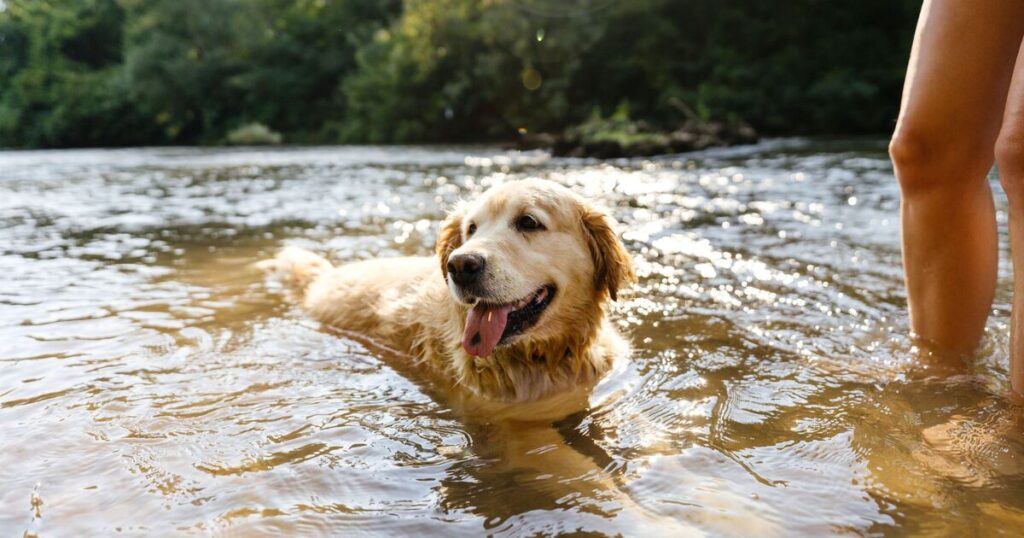
Dog owners are being urged to remain vigilant this summer as dangerous bacteria threaten the safety of pets across the UK. With temperatures remaining high and dry conditions becoming more prevalent, a silent but deadly hazard is hiding in local lakes, ponds, and rivers — and it could be fatal within moments.
Experts are raising alarm over a likely surge in blue-green algae, a harmful type of bacteria that thrives in still or slow-moving bodies of water during warm, sunny periods. The warning especially applies to dogs as owners seek ways to help their pets cool off while on walks. Charlie Matthias, Senior Veterinary Surgeon at Dogs Trust, said: “As temperatures continue to soar and water levels drop, there is a potential for an increase in blue-green algae, which poses a real threat to dogs.”
Blue-green algae are highly toxic even in small doses and can cause severe illness in dogs who swim in or drink from contaminated water.
“On hot days, it can be tempting to let your dog dip in your local lake or river to cool down,” Charlie added, “but blue-green algae can make your dog very sick, and in some cases, prove fatal if ingested even in small quantities.”
The symptoms of poisoning can develop rapidly – often within minutes – and may include vomiting, diarrhoea, excessive drooling, seizures, muscle tremors, difficulty breathing, and sudden collapse.
The bacteria primarily target the liver and neurological system, making it especially dangerous with no known antidote.
The Dogs Trust specialist cautioned: “We’re urging all dog owners to avoid letting their dogs swim in or drink from lakes or rivers that look green, scummy, have surface foam, or have warning signs nearby.
“Blue-green algae is not always easy to spot, so if in doubt, don’t let your dogs swim in or drink from the water. And, if you are walking your dog near water where blue algae have formed, keep them on a lead.”
Owners are advised to keep dogs away from stagnant or still water during hot weather and to thoroughly wash them if accidental contact occurs.
If exposure is suspected, immediate veterinary attention is critical, as early treatment may help reduce the effects, although recovery is not guaranteed.
